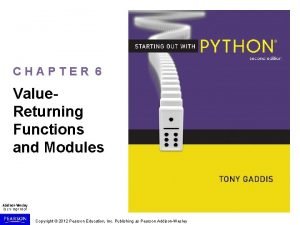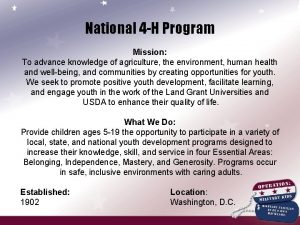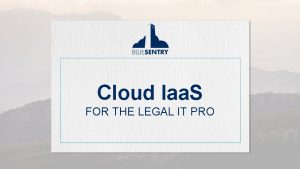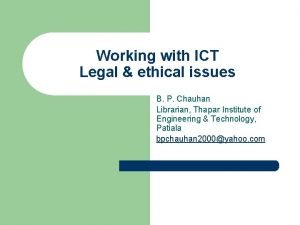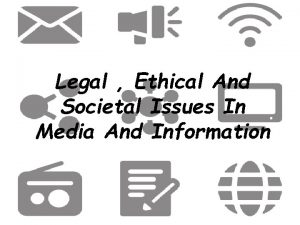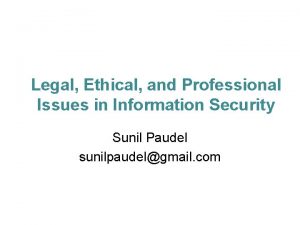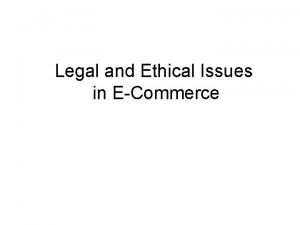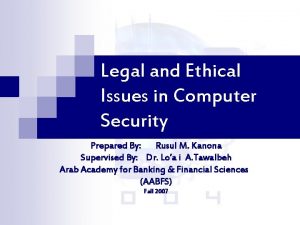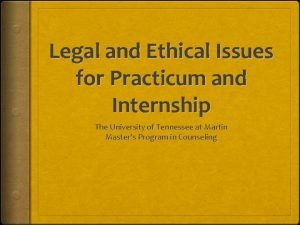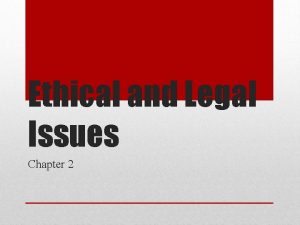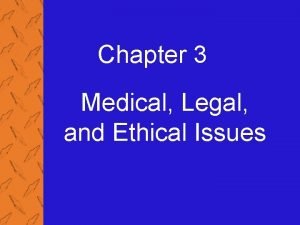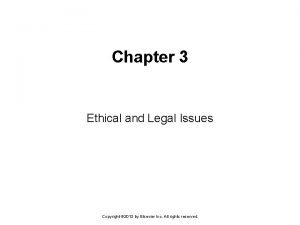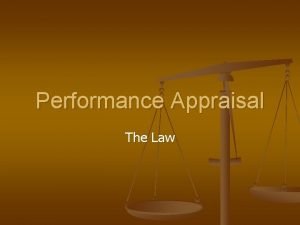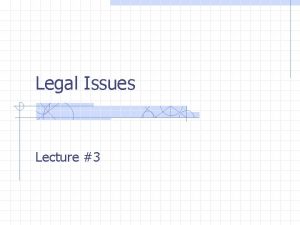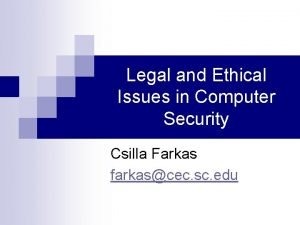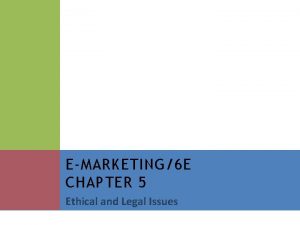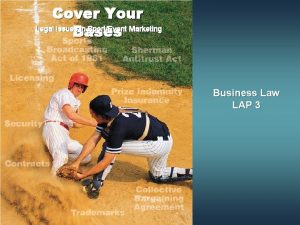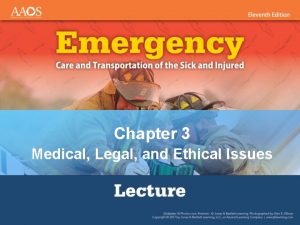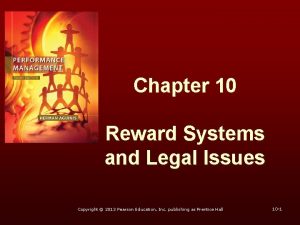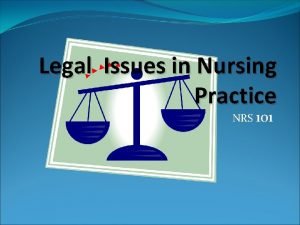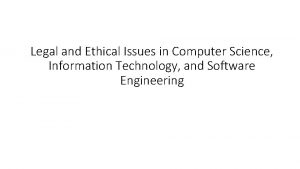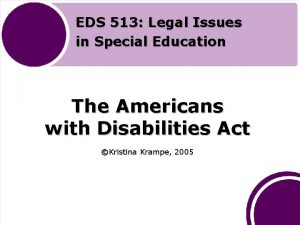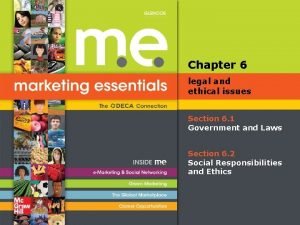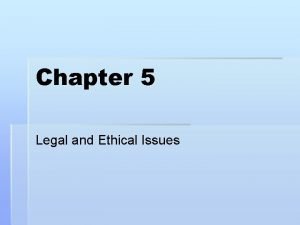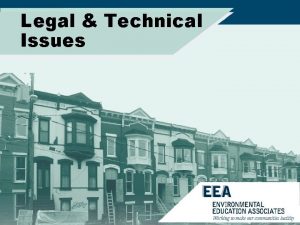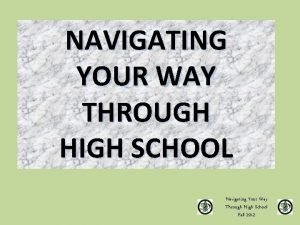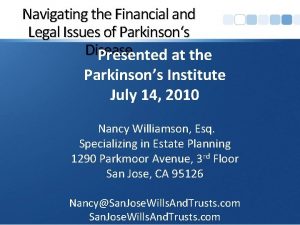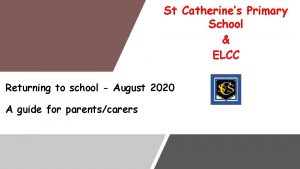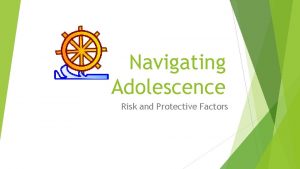Navigating Legal Issues Returning to School Society for



































- Slides: 35

Navigating Legal Issues Returning to School Society for Classical Learning August 7, 2020 © 2020, Fisher Phillips LLP. All rights reserved. fisherphillips. com

Today’s Presenters SUSAN GUERETTE KRISTIN L. SMITH sguerette@fisherphillips. com klsmith@fisherphillips. com © 2020 Fisher & Phillips LLP Fisher Phillips Education Practice Group

> Governmental requirements/guidelines: RETURN TO SCHOOL www. fisherphillips. com > Be aware of all state and local orders and CDC and other governmental guidance on requirements and limitations for returning employees and students to school > Orders change frequently. Double check when making decisions. Fisher Phillips Education Practice Group

> State Orders > Local Orders (County or City) Government Orders, Recommendations and Guidance > Health Department Directives, Recommendations and Guidance > Attorney General Guidance and Opinions > State Department of Education > Religious School Considerations www. fisherphillips. com Fisher Phillips Education Practice Group

> What if an employee refuses to return to work? > Why? > What is the job? > Any government orders in place? DEALING WITH EMPLOYEE RETURN ISSUES > Telework available? > FFCRA – EPSL or EFMLA > Do they have a disability > Pregnancy, breast-feeding > Over at risk age > ADA (interactive process) > May also consider FMLA www. fisherphillips. com Fisher Phillips Education Practice Group

CASE STUDY > Your school has returned to campus and Jane, your librarian, says that she is not feeling well. She mentions that she has a cough and congestion. > What leave could she potentially have available? www. fisherphillips. com Fisher Phillips Education Practice Group

Six reasons for leave: > Employee has work (whether telework or on campus) but cannot work because: FAMILIES FIRST CORONAVIRUS RELIEF ACT (FFCRA) > Government imposed quarantine > Advised by HCP to self-quarantine > Is experiencing symptoms of COVID-19 and seeking medical care > Is caring for an individual in (1) or (2) above > Is caring for son/daughter whose school or childcare provider is closed or unavailable due to COVID-19 > Other similar reasons www. fisherphillips. com Fisher Phillips Education Practice Group

Pay Requirements > EPSL - Reasons 1 -3: EPSLA: paid for 2 weeks at greater of regular rate/minimum wage or $511 per day (maximum of $5110 for 10 days) FAMILIES FIRST CORONAVIRUS RELIEF ACT (FFCRA) > EPSL – Reasons 4 -6: paid for two weeks at two thirds their rate of pay (capped at $200 per day, $2, 000 in the aggregate) > EFMLA – employee is unable to work because school or day care is closed or unavailable due to public health emergency; after ten days unpaid employees are paid 2/3 of their regular rate of pay for up to 10 weeks (capped at $200 per day, maximum of $2000 for 10 weeks) Other considerations: > Law sunsets on 12/31/20 > No retaliation www. fisherphillips. com Fisher Phillips Education Practice Group

CASE STUDY > Another employee says that their grandparent was going to watch their child when school starts but now does not feel comfortable doing so because the school is going to be open and your employee may be exposed to COVID? > What are the options to consider? www. fisherphillips. com Fisher Phillips Education Practice Group

CASE STUDY Tom, your security officer, just returned from vacation. He had a great time in a “hot spot” state (Florida, California, Texas). Do you have an concerns? What should you consider? www. fisherphillips. com Fisher Phillips Education Practice Group

FAMILIES FIRST CORONAVIRUS RELIEF ACT (FFCRA) www. fisherphillips. com > Is there a government imposed quarantine if returning from certain states? > If not “required” is it recommended? > What is the difference? > Is there any policy that you might want to put in place? Fisher Phillips Education Practice Group

Recent New York Court Decision Interpeting FFCRA HR Take Aways www. fisherphillips. com > Avoid using work availability as a consideration when determining whether leave should be provided – schools that have temporarily closed operations because of a federal, state or local order or other reason may be required to provide paid leave if an employee is unable to work or telework due to a qualifying reason. > Previous prohibitions on intermittent leave still stand but employer consent is not required for permitted intermittent leave – intermittent leave to care for child whose school is closed should not be refused because school does not consent to it. > Vacated requirement that employees provide supporting documentation “prior” to taking FFCRA leave – allow employees to start leave without providing documentation first. Fisher Phillips Education Practice Group

CASE STUDY You have sent out an inquiry to your faculty and staff asking if anyone has any issues that may prevent them from returning to campus when you reopen. You ask them to bring any issues to the attention of HR. Kristin, your third grade science teacher, tells you that she has severe asthma, and would be seriously harmed if she was exposed to COVID-19. What is your next step? www. fisherphillips. com Fisher Phillips Education Practice Group

> Interactive Process > What if the employee cannot be at work but an essential function of the job is teaching and supervision of children? DEALING WITH EMPLOYEE RETURN ISSUES > Assess telework options; > What would you do for your favorite employee? > FFCRA > ADA leave > FMLA www. fisherphillips. com Fisher Phillips Education Practice Group

> The FMLA entitles eligible employees of covered employers to take up to 12 weeks of unpaid, job-protected leave in a designated 12 -month leave year: WHEN DOES FMLA APPLY? > to care for the employee’s spouse, child, or parent who has a serious health condition > for a serious health condition that makes the employee unable to perform the essential functions of his or her job > This may include the flu where complications arise that create a “serious health condition” as defined by the FMLA www. fisherphillips. com Fisher Phillips Education Practice Group

> Leave taken by an employee for the purpose of avoiding exposure to COVID 19 would not be protected under the FMLA. > What if there is a medical condition? Should we designate the time as FMLA? www. fisherphillips. com Work from home is an ADA issue If leave is result, then assess FMLA Complicated Example – car accident and arm amputated – disabled but not serious health condition > Give FMLA paperwork but consult with counsel before adverse decision > May still need to give ADA leave after 12 weeks > > Fisher Phillips Education Practice Group

CASE STUDY www. fisherphillips. com > Your advancement director is really nervous about returning to school. You know that she has had panic attacks in the past and has been out of school for those in the past. What should you say to her when she mentions this to you? Fisher Phillips Education Practice Group

> Employees with certain preexisting mental health conditions, for example, anxiety disorder, obsessive-compulsive disorder, or post-traumatic stress disorder, may have more difficulty handling the disruption to daily life that has accompanied the COVID-19 pandemic. MENTAL HEALTH ISSUES www. fisherphillips. com > As with any accommodation request, employers may: ask questions to determine whether the condition is a disability; discuss with the employee how the requested accommodation would assist him and enable him to keep working; explore alternative accommodations that may effectively meet his needs; and request medical documentation if needed. Fisher Phillips Education Practice Group

Is an employee entitled to an accommodation under the ADA in order to avoid exposing a family member who is at higher risk of severe illness from COVID-19? (EEOC 6/11/20) www. fisherphillips. com > No. Although the ADA prohibits discrimination based on association with an individual with a disability, that protection is limited to disparate treatment or harassment. > The ADA does not require that an employer accommodate an employee without a disability based on the disability-related needs of a family member or other person with whom she is associated. > An employer is free to provide such flexibilities if it chooses to do so but should be careful not to engage in disparate treatment. Fisher Phillips Education Practice Group

Is there a right to accommodation based on pregnancy during the pandemic? (EEOC 6/11/20) > Pregnancy-related medical conditions may themselves be disabilities under the ADA, even though pregnancy itself is not an ADA disability. If an employee makes a request for reasonable accommodation due to a pregnancy-related medical condition, the employer must consider it under the usual ADA rules. > Title VII as amended by the Pregnancy Discrimination Act specifically requires that women affected by pregnancy, childbirth, and related medical conditions be treated the same as others who are similar in their ability or inability to work. What is your next step? www. fisherphillips. com Fisher Phillips Education Practice Group

Do employees over 65 have any protections? (6/11/20) www. fisherphillips. com > Age Discrimination in Employment Act (ADEA) prohibits employment discrimination against individuals age 40 and older so cannot prohibit them from working even if for benevolent reasons; > ADEA does not include a right to reasonable accommodation for older workers due to age > Workers age 65 and older also may have medical conditions that bring them under the protection of the ADA as individuals with disabilities. As such, they may request reasonable accommodation for their disability as opposed to their age. Fisher Phillips Education Practice Group

> What if you know that an employee has an underlying health issue but the employee does not mention it? > Okay to raise issue DEALING WITH EMPLOYEE RETURN ISSUES > Direct threat analysis after medical evidence > What if the employee is fearful of returning but has no medical issue? > Can you require the individual to return? > Can you fire them if they do not want to? www. fisherphillips. com Fisher Phillips Education Practice Group

> What if the employee with an underlying medical condition wants to return to work and her doctor says she can? How can we protect our school from liability if she gets sick? > ADA assessment DEALING WITH EMPLOYEE RETURN ISSUES > If no direct threat and she can perform the essential functions, she gets to return > Consider whether telework is possible and think outside the box > You cannot force her to stay away > Let her know to communicate any concerns > Use all the same processes with her (temperature taking, face covering, etc. ) www. fisherphillips. com Fisher Phillips Education Practice Group

> Schools may require employees and students to test prior to the first day of school TESTING BEFORE BACK TO SCHOOL > For employees, the testing must be free. The school may pay for testing or be available through the employee’s health insurance > For non-exempt employees, time spent testing is compensable > If the school is providing testing, it should be limited to those for which the FDA has issued Emergency Use Authorization. Otherwise a required test may violate ADA. > Test results should go directly to the employee or the student’s family and then they should provide the results to the school. If the results are provided directly to the school, a HIPAA compliant authorization will be required. www. fisherphillips. com Fisher Phillips Education Practice Group

> Call your local health department. COVID-19 is now a nationally notifiable disease. > The health department may or may not direct or take over contact tracing. If they do not, you must do so. > Review your state’s requirements for contact tracing and then current CDC guidance. CONTACT TRACING AND REPORTING > Assess who the individual may have come in prolonged, direct contact with at school. Presently the CDC defines this as within 6 feet for 15 minutes or more. > Some states (but not all) are allowing schools to take into consideration whether parties were masked, ventilation, presence of dividers, and case symptomology. > An individual who meets all of these criteria should stay home until 14 days after the last exposure, maintain social distance, self-monitor for symptoms, avoid contact with people at higher risk for severe illness and follow CDC guidance if symptoms develop. www. fisherphillips. com Fisher Phillips Education Practice Group

EMPLOYEES WHO ARE SICK AT WORK OR HAVE A TEMPERATURE > If an employee has a temperature or reports any signs of COVID or other illness, or if they tell you that they have been in direct contact with someone who has tested positive or has symptoms of COVID, you should: > Isolate them/send them home > Question them and assess who they may have come in direct contact with at work (within 6 feet) or in other places > Notify others in the workplace of the exposure without disclosing the sick employee's name absent consent > Immediately sanitize the area > Time away may be paid under EPSLA or under your policies www. fisherphillips. com Fisher Phillips Education Practice Group

STUDENTS WHO ARE SICK AT SCHOOL OR HAVE A TEMPERATURE > If a student has a temperature or reports any signs of COVID or other illness, or if they tell you that they have been in direct contact with someone who has tested positive or has symptoms of COVID, you should: > Immediately quarantine if they are on campus > Call parents to pick up > Question them and assess who they may have come in direct contact with at school (within 6 feet) > Notify others at school of the exposure without disclosing the sick student's name absent parental consent (and even with consent beware) > Immediately sanitize the areas in which student spent time www. fisherphillips. com Fisher Phillips Education Practice Group

> Look at state guidance > Look at then current CDC guidance > Currently the CDC states that return to school is permitted if: > 10 days since symptoms first appeared and RETURN TO WORK/SCHOOL > 24 hours with no fever without the use of fever-reducing medications and > COVID-19 symptoms have improved (for example, cough, shortness of breath) > You may require a negative test in order to return to school but the CDC does not recommend it due to unreliability of testing. www. fisherphillips. com Fisher Phillips Education Practice Group

> Many states are requiring face coverings for employees and students. > May require all students wear face coverings even if Order sets a certain grade > For employees who are unable to wear a mask, the request for accommodation should be handled through the same process as other medical accommodations. FACE COVERINGS www. fisherphillips. com > If a student is unable/unwilling/health compromised, how should we respond? > Face Covering Order > Most states are allowing schools ask for documentation of a disability > Accommodations for such students should be made in partnership with the student’s health care provider, school nurse, and student accommodations/IEP/504 team. Fisher Phillips Education Practice Group

> Not permitted. ANTI-BODY TESTING (different than COVID-19 tests) www. fisherphillips. com > EEOC - An antibody test constitutes a medical examination under the ADA. In light of CDC’s Interim Guidelines that antibody test results “should not be used to make decisions about returning persons to the workplace, ” an antibody test at this time does not meet the ADA’s “job related and consistent with business necessity” standard for medical examinations or inquiries for current employees. Therefore, requiring antibody testing before allowing employees to re-enter the workplace is not allowed under the ADA. Fisher Phillips Education Practice Group

> There are many considerations for the use of waivers, including: > Thinking through the purpose of the use of a waiver > Not all states uphold waivers for student liability purposes WAIVERS > You cannot use them as a substitute for appropriate behavior on your part > Waivers are ineffective and cannot prevent EEOC charges, OSHA claims, workers’ compensation claims > Language of the waiver may result in an admission that your campus is unsafe > Demand for waiver could create PR concerns > Determine what you will do if the employee/parent does not sign a waiver www. fisherphillips. com Fisher Phillips Education Practice Group

> There are some good reasons to have waivers: > It will be nearly impossible to keep young children apart and enforce social distancing; waiver is a parent’s recognition that even best efforts may fail > Some states will enforce them WAIVERS > May cause some employees/parents not to sue the school for minor injuries > If you are opening contrary to an order, recommendation or directive consider calling it out and encouraging parents to read it and do their own research www. fisherphillips. com Fisher Phillips Education Practice Group

> Have parents sign acknowledgment forms: > Acknowledgment of preventative measures being taken; ALTERNATIVES TO WAIVERS FOR PARENTS AND STUDENTS > Even with those school cannot guarantee that parent or children will not be exposed if they bring children to campus; > By choosing to bring children, parents acknowledge the contagious nature of COVID-19; > Voluntarily assume the risk that children will be exposed, infected or re-infected; > such exposure or infection may result in severe illness, permanent disability, or death. > Alternative - Include acknowledgement in handbook www. fisherphillips. com Fisher Phillips Education Practice Group

> Have employees sign acknowledgment following Reopening plan: ALTERNATIVE TO WAIVERS FOR EMPLOYEES > Acknowledge having read return to campus procedures; > Acknowledge will comply with return to campus procedures; > Acknowledge that if any questions they should contact member of HR. www. fisherphillips. com Fisher Phillips Education Practice Group

ADDITIONAL QUESTIONS If you have any questions following this presentation, please contact your Fisher Phillips attorney. SUSAN GUERETTE sguerette@fisherphillips. com KRISTIN L. SMITH klsmith@fisherphillips. com © 2020 Fisher & Phillips LLP
 Land of the morning philippines lyrics
Land of the morning philippines lyrics A value-returning function is
A value-returning function is Tyler perry scholarships
Tyler perry scholarships Returning back to god
Returning back to god Powerschool login huntsville city schools
Powerschool login huntsville city schools Culmington manor
Culmington manor I conclude then returning to being feared
I conclude then returning to being feared Returning warrior workshop
Returning warrior workshop Regions of the body
Regions of the body Navigating the digital landscape
Navigating the digital landscape What is the purpose of liquid in the capsule of a compass?
What is the purpose of liquid in the capsule of a compass? From a granite post proceed
From a granite post proceed Aws gdpr compliance
Aws gdpr compliance Navigating the art world
Navigating the art world Navigating gdpr compliance on aws
Navigating gdpr compliance on aws Legal issues of ict in education
Legal issues of ict in education Ethical media issues
Ethical media issues Legal and ethical issues in information security
Legal and ethical issues in information security Legal issues in ecommerce
Legal issues in ecommerce Legal and ethical issues in computer security
Legal and ethical issues in computer security Ethical and legal issues involved in practicum
Ethical and legal issues involved in practicum Ethical and legal issues chapter 2
Ethical and legal issues chapter 2 Medical legal and ethical issues chapter 3
Medical legal and ethical issues chapter 3 Legal and ethical issues chapter 3
Legal and ethical issues chapter 3 Legal issues in performance appraisal
Legal issues in performance appraisal Legal issues in hrm
Legal issues in hrm Ethical issues in computer security
Ethical issues in computer security Legal and ethical issues chapter 5
Legal and ethical issues chapter 5 Legal issues in sport/event marketing match-up
Legal issues in sport/event marketing match-up Chapter 3 medical legal and ethical issues
Chapter 3 medical legal and ethical issues Reward system and legal issues
Reward system and legal issues Legal issues in nursing practice
Legal issues in nursing practice Legal issues in computer science
Legal issues in computer science Legal issues in special education
Legal issues in special education Chapter 6 legal and ethical issues
Chapter 6 legal and ethical issues Legal and ethical issues chapter 5
Legal and ethical issues chapter 5

